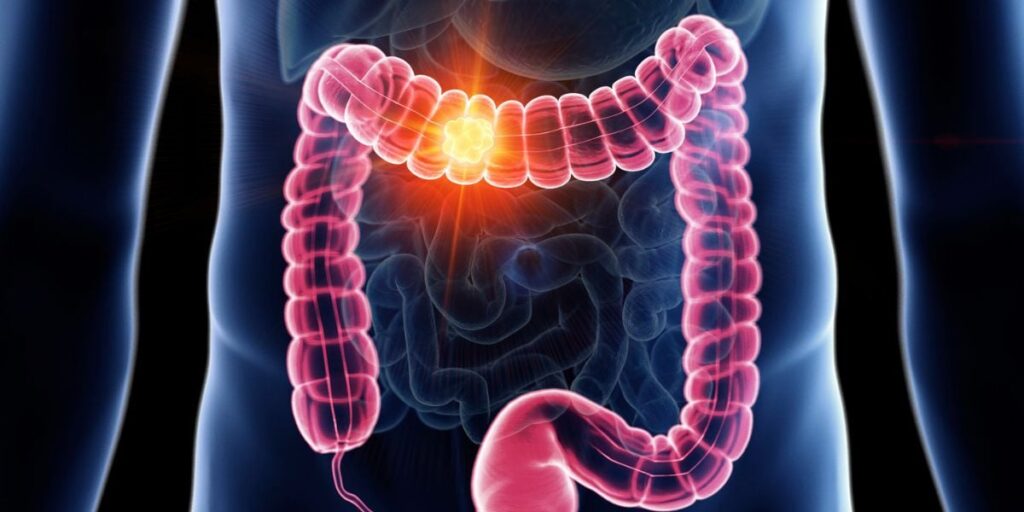
Colon and Rectal Cancer: Navigating the Journey to Hope and Healing
Introduction
In a world where health takes precedence, it’s crucial to delve into subjects that could touch our lives directly. Among these, colon and rectal cancer stand as significant adversaries, affecting millions of lives across the globe. This article embarks on a journey through the intricate landscape of colon and rectal cancer, shedding light on prevention, diagnosis, treatment, and the emotions that accompany this challenging journey.
Understanding Colon and Rectal Cancer

Unraveling the Basics
Colon and rectal cancer, collectively known as colorectal cancer, originates in the colon or rectum’s inner lining. The cells in this region begin to grow uncontrollably, forming polyps that may turn malignant over time. Early detection is crucial as these cancers often develop without noticeable symptoms in the initial stages.
The Rising Concern
Colon and Rectal Cancer ranks as one of the most common cancers worldwide, with the risk increasing with age. Genetics, family history, and lifestyle factors like diet and physical activity play pivotal roles in its development. However, it’s important to remember that anyone, regardless of their background, can be affected.
Symptoms and Diagnosis: Navigating the Uncertainty
Listening to Your Body
Recognizing the subtle hints that our bodies provide can be the first step towards timely intervention. Symptoms of colorectal cancer may include persistent changes in bowel habits, blood in the stool, unexplained weight loss, and fatigue.
Diagnostic Measures
Screening and early detection are instrumental in improving survival rates. Tests like colonoscopy, virtual colonoscopy, and stool tests aid in spotting abnormalities before they become cancerous. Remember, early detection often makes a significant difference.
The Emotional Roller Coaster: Facing the Diagnosis
Fear and Uncertainty
Colon and Rectal Cancer diagnosis can be a shattering blow, leading to a whirlwind of emotions. Fear, anxiety, and uncertainty become unwelcome companions, making it crucial to seek emotional support from loved ones, therapists, or support groups.
Finding Strength within Vulnerability
As the journey unfolds, many patients discover a newfound inner strength. Sharing experiences with fellow survivors can be empowering, reminding us that we’re never alone. Embracing vulnerability can pave the way for emotional healing and growth.
Treatment Options: Charting a Path to Recovery
Surgical Interventions
Depending on the stage and location of the cancer, surgical procedures may be recommended. Surgeons work meticulously to remove the cancerous growth, often aiming to preserve normal bodily functions and maintain the patient’s quality of life.
Chemotherapy and Radiation
These treatments target cancer cells, aiming to shrink tumors before surgery or eliminate any remaining cancer cells post-surgery. While they can be challenging, the advances in medical science have led to more personalized treatment plans, minimizing side effects.
Embracing Hope: Life After Treatment
The Road to Recovery
Surviving cancer is a remarkable feat, but the journey doesn’t end with treatment. Physical rehabilitation, dietary adjustments, and ongoing medical check-ups play essential roles in reclaiming a sense of normalcy.
A New Perspective on Life
Many survivors emerge from their battle with cancer with a renewed appreciation for life. They embrace each day with gratitude, finding joy in the simplest of things and fostering meaningful connections.
Conclusion
The road through colon and rectal cancer is filled with challenges, but it’s also a path of resilience, hope, and strength. By understanding the risks, recognizing the symptoms, and seeking timely medical attention, we can navigate this journey with grace and determination. Remember, you’re never alone in this fight.
FAQs
- Is colorectal cancer hereditary? While genetics can play a role, most cases are not directly inherited. However, having a family history can increase your risk.
- At what age should I start getting screened for colorectal cancer? It’s generally recommended to start regular screenings around the age of 50. However, if you have risk factors, consult your doctor earlier.
- What can I do to reduce my risk of colorectal cancer? Maintaining a healthy lifestyle, including a balanced diet and regular exercise, can significantly lower your risk.
- Is colorectal cancer treatable if detected early? Yes, early detection can lead to successful treatment and higher survival rates.
- Where can I find support during my cancer journey? There are various support groups, online communities, and counseling services available to provide emotional support and guidance.
Read More
Cancer Risks: Navigating the Emotional Journey of Battling the Unknown
Understanding Liver Cancer: Symptoms, Signs, and Causes
Colon and Rectal Cancer: Navigating the Journey to Hope and Healing
Leukemia: Battling the Unseen Foe
Bladder Cancer: Battling the Unseen Foe
Endometrial Cancer: Navigating Hope Through Challenges
Kidney Cancer: Understanding the Journey from Diagnosis to Hope
Melanoma: Understanding the Shadows on Your Skin
Understanding Non-Hodgkin Lymphoma: Unraveling the Journey of Courage
